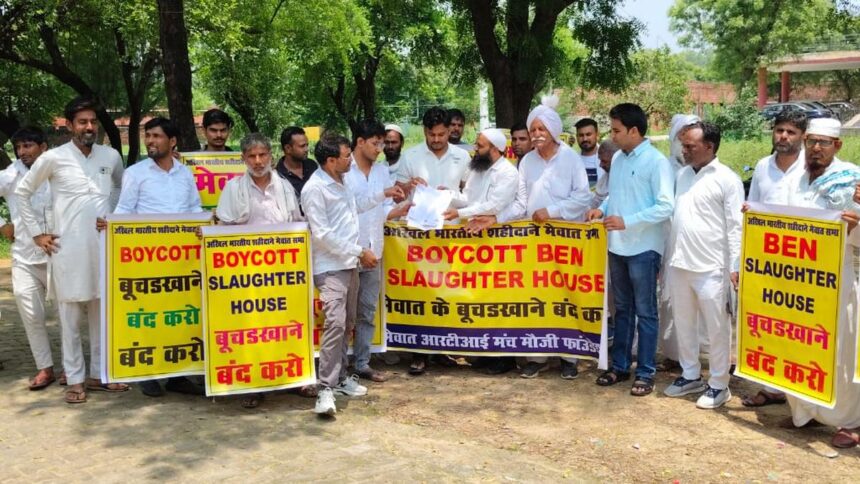Seven slaughterhouses currently operate in Nuh, Haryana, with the majority—five—located in the Nagina block. An additional two dozen slaughterhouses are expected to be established soon, as land has been acquired and construction is underway, positioning Nuh as a central location for these facilities.
While these slaughterhouses have provided employment opportunities for local youth in the predominantly Meo Muslim area, sentiment among residents is shifting against them for several reasons. The community accuses the facilities of violating environmental standards, leading to groundwater pollution and unpleasant odors. There are also concerns about pest infestations, raising fears of disease outbreaks in a region already struggling with sanitation challenges.
On August 1, local leaders from various political parties, including the ruling Bharatiya Janata Party (BJP) and the Congress, alongside social activists and village heads, gathered at Nuh’s grain market to voice their opposition to the increasing number of abattoirs. BJP leader and former Minister Azad Mohammad commented that the proliferation of slaughterhouses poses significant issues for the Ferozepur Jhirka constituency, emphasizing that despite his party affiliation, he opposes the facilities due to their adverse impact on air quality and their role as pest breeding grounds.
The attendees submitted a memorandum to local authorities addressed to the Chief Minister, Home Minister, and Prime Minister. Rajuddin Meo, convenor of the Mewat RTI Manch and an active participant in the protests, noted that slaughterhouses relocating from Uttar Pradesh are increasingly moving to Nuh. He explained that many owners, being Muslim, consider Nuh a safer environment for their businesses, and land prices are relatively low—around ₹25 lakh per acre.
Mr. Meo added that residents are pushing for a moratorium on new slaughterhouse licenses, citing existing water scarcity issues and the proximity of some facilities to residential areas, which disrupts daily life.
Akansha Tanwar, Regional Officer of the Haryana State Pollution Control Board in Nuh, informed The Hindu that eight abattoirs had been granted “Consent to Operate,” although only seven are currently active. An additional 23 have received “Consent to Establish” and are under construction. She stated that no new “No Objection Certificates” (NOCs) were issued during her tenure, although six NOCs were granted in 2023. Tanwar highlighted the lack of specific guidelines for determining suitable locations for slaughterhouses. In light of the opposition, she mentioned plans to create siting parameters regarding their distance from residential areas, schools, and highways. Inspections to ensure compliance with environmental norms will be conducted soon.










